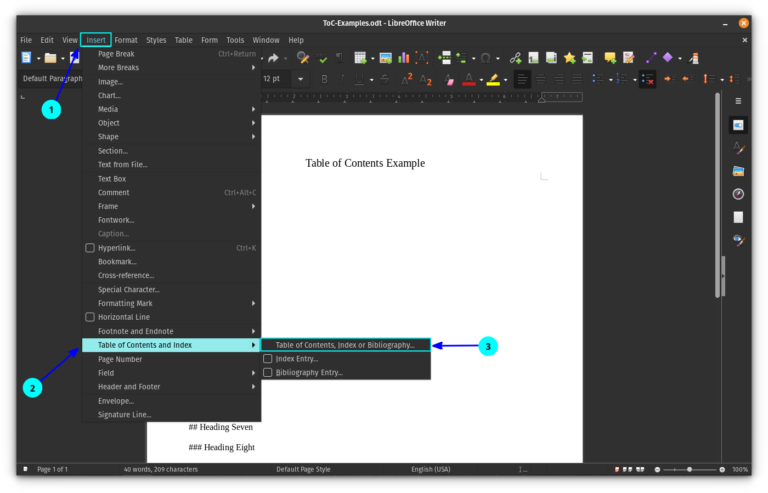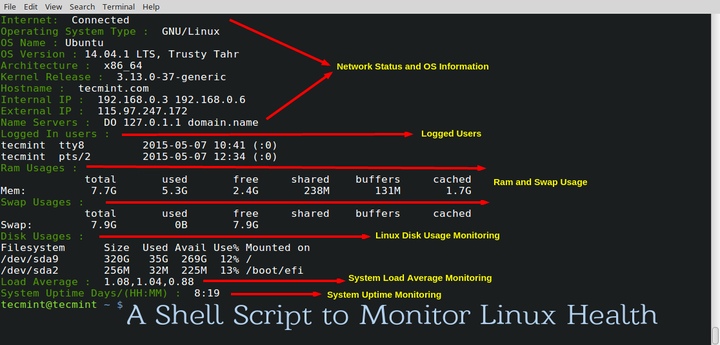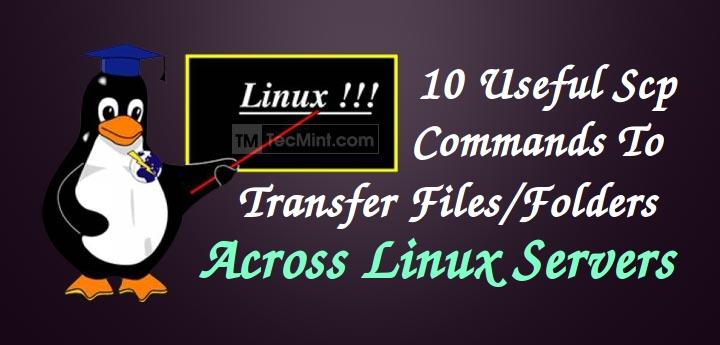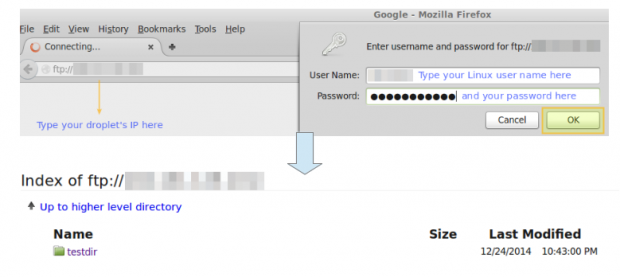4 Best Google Docs Alternatives for Linux in 2023
Google Docs is probably one of the most widely used office suites in the world. Its set of editing tools and high usability make life easier for those who want to work on the same document simultaneously or share files online with different users.
In order to use the Google online suite, you simply need to have a Gmail account and Google will provide you with all the required tools for collaborative work and real-time communication — Google Docs, Google Sheets, Google Slides, Google Forms, Google Meet, and Google Drive, all in one place.
However, Google is no longer the only company to offer a suite of online office applications. If you are not satisfied with Google’s services and policies or simply care about the privacy of your data, there is a wide range of Google Docs alternatives that you can use on Linux.
In this article, we have selected the best solutions that you can install on your machine or access via your web browser to enjoy the benefits of real-time co-authoring.
1. ONLYOFFICE Docs
ONLYOFFICE Docs belong to those Google Docs alternatives that give you the freedom to create a comfortable collaborative environment within your local network. It’s an open-source and self-hosted office suite oriented towards collaboration and online work.
ONLYOFFICE Docs feature tools to create, edit, and co-author text documents, spreadsheets, presentations and electronic forms as well as a viewer for PDF and DjVu files.
The suite’s native formats are OOXML (DOCX, XLSX, and PPTX), which makes it completely compatible with Word, Excel, and PowerPoint files. Other popular file extensions, like ODT, ODS, and ODP, are supported too, but only via conversion to OOXML.
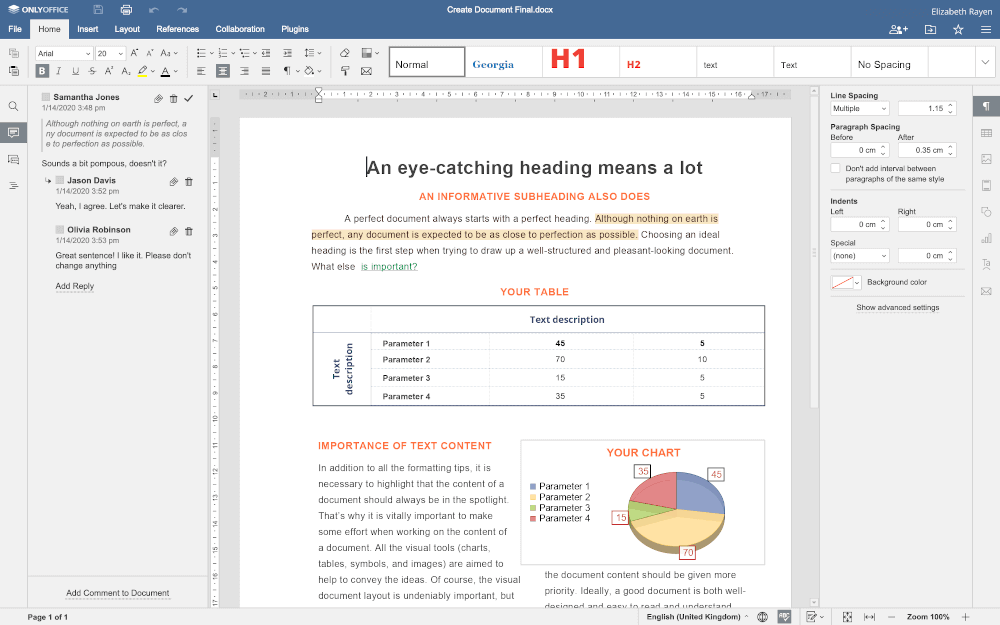
When it comes to online document collaboration, ONLYOFFICE Docs offers everything you need to work with other people in real-time. There are two co-editing modes (Strict and Fast), version history, track changes, and review, document comparison and combination, comments, flexible sharing permissions, chats, and communication with audio and video call via the Jitsi and Zoom plugins.
What makes ONLYOFFICE Docs stand out is its integration with ChatGPT. If you have an API key, you can install the corresponding plugin and use the AI to analyze texts, make summaries, translate into German and French, generate images, find synonyms, and more.
What’s more, ONLYOFFICE can enable document editing and co-authoring within a number of popular cloud storage platforms, document management systems, and even e-learning solutions.
Such integration is made possible due to the so-called connectors or integrations apps. Some examples are Seafile, Nextcloud, WordPress, Moodle, Redmine, Mattermost, ownCloud and many others.
For individual users and small teams, ONLYOFFICE Docs have a free community version with no editing limitations. There is also a self-hosted enterprise edition with some extra features and professional support.
If you want to get a ready-to-use ONLYOFFICE Document Server, you can opt for its cloud-based version, hosted and maintained by the developers, but it will cost you some money. The ONLYOFFICE desktop and mobile apps are always free.
Key benefits:
- Complete compatibility with OOXML formats.
- Full set of collaborative features.
- ChatGPT plugin.
- Web, desktop, and mobile apps.
- Seamless integration with more than 30 third-party platforms.
2. CryptPad – Collaboration Suite
CryptPad is an end-to-end encrypted and open-source suite of collaborative apps. This service, with servers hosted in France, is perhaps best suited to those familiar with Google Docs and allows you to create text documents, spreadsheets, forms, Markdown slides, whiteboards, and even write programming code.
Using CryptPad, you can be absolutely sure that your data is reliably encrypted in the web browser. Only you can access your files stored in CryptDrive, the service’s file storage hub. Even the CrypdPad administrators are not allowed to see any user data.
Team drives, calendars, and file sharing are the main features offered by CryptPad for collaborative work. You can create shared folders, share files with other users, add contacts for encrypted collaboration, and create user profiles. Also, you are allowed to adjust access configuration and access your CryptDrive account from any device, even on the go.
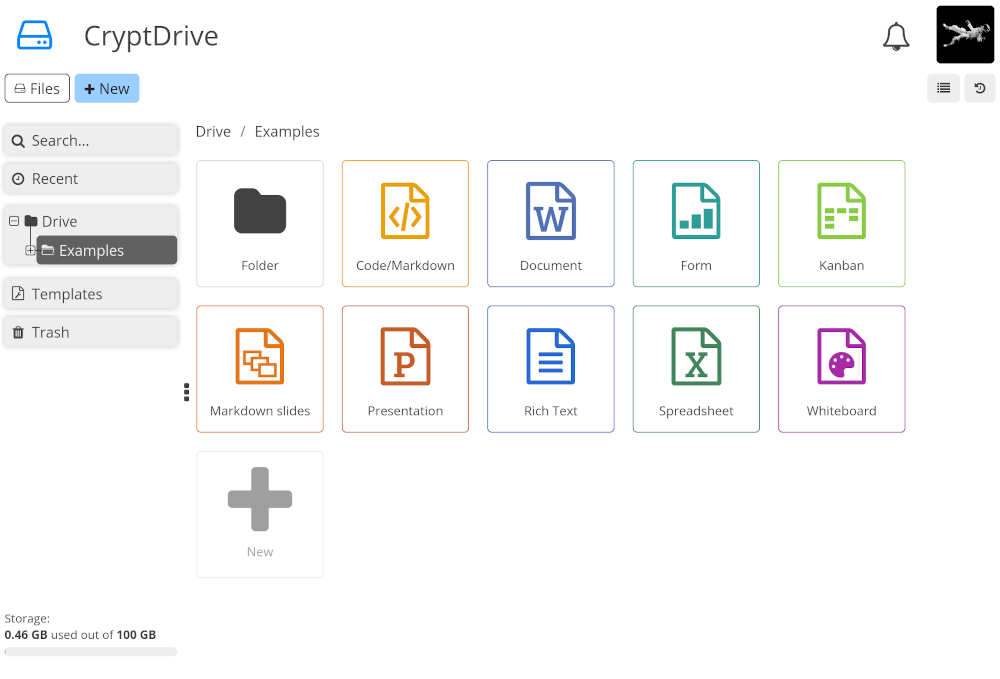
The good news about CryptPad is that you can use its most essential CryptPad features for free without registering an account. As an anonymous guest, you can create and edit files, but they can’t be shared and will be deleted after 90 days of inactivity.
If you want to use CryptPad for collaboration, you have to register an account. This action requires no personal information but gives you access to more features and 1 GB of cloud storage space. You can always upgrade your free account to Premium to get some more storage space and faster support.
P.S. Just an interesting fact: the CryptPad spreadsheet tool is based on the ONLYOFFICE technology, so the editing experience is identical in both programs.
Key benefits:
- End-to-end encrypted collaboration in real-time.
- Minimalistic interface and ease of use.
- Completely anonymous access with no need to create an account.
3. Etherpad – Collaborative Online Editor
Etherpad is an interesting software tool but it’s not a complete alternative to Google Docs because it focuses entirely on text editing.
It doesn’t allow you to create and edit spreadsheets or presentations, which can be a big disadvantage for some Linux users. However, Etherpad is a solid option if you just want to use your web browser and collaborate on text documents in real-time.
Etherpad is open source, which gives you access to its code. That’s why you can modify the Etherpad code for any purpose. Because Etherpad is hosted on your own server, you know you have full control over your documents.
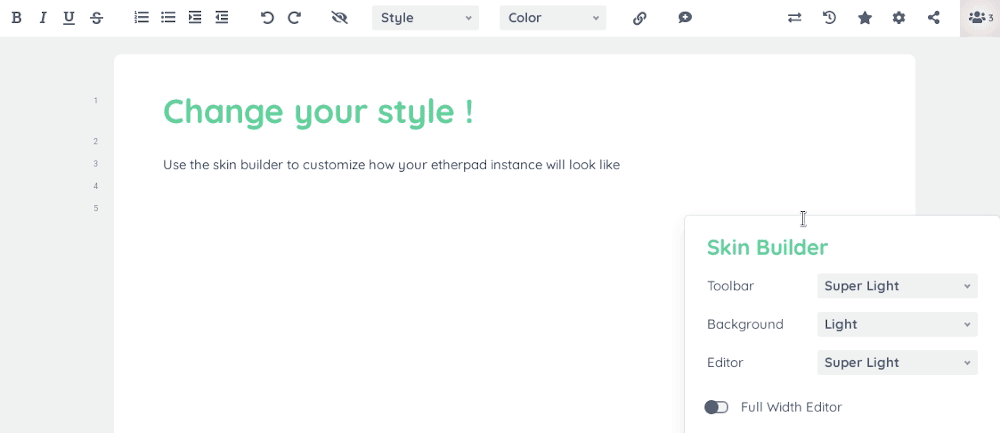
Getting started with Etherpad is a piece of cake. You can choose one of the publicly available instances that have been already set up and configured by other enthusiasts from all over the world. Obviously, this option is not good if you are going to work with sensitive data and confidential text documents. Alternatively, you can deploy your own instance to work in a more secure environment.
When it comes to functionality, Etherpad has all the necessary basic features to create, edit and collaborate on text documents with other users. Another advantage of the editor is that it’s highly customizable through plugins.
For example, you can add various formatting and editing add-ons, like table of contents and hyperlinks. Also, you can even enable audio and video calls and embed media files, such as YouTube videos.
Etherpad is free, but you are always welcome to donate if you like the project.
Key benefits:
- Easily customizable interface via the skin builder.
- Publicly available instances for immediate start.
- Collection of plugins.
4. Curvenote – We Online Editor
Curvenote is a very unusual tool on this list. It’s not just a web-based editor for online collaboration but a whole content management system (CMS) for scientific and technical content. This platform is specifically designed to facilitate scientific research and collaboration between distributed teams, engineers, and scientists.
Using Curvenote, you can create public or private projects for your research work and invite other collaborators so they can view, edit and comment on all the documents and content. At the same time, collaborators can’t create new documents, so you can have full control over your projects.
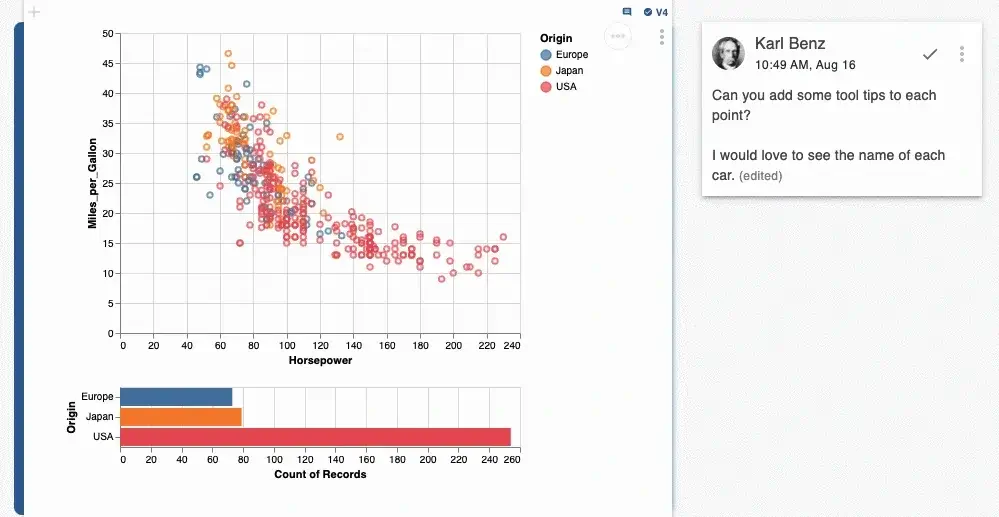
For document collaboration, Curvenote offers a WYSIWYG (What You See Is What You Get) editor that is compatible with Markdown, Latex-based equations, citations, tables, figures, and other interactive objects.
The built-in editor allows you to work on content of any type, including scientific papers, reports, PhD theses, or technical documentation. Your documents can be exported to different formats, like DOCX, PDF, LaTeX, and HTML. There is also a feature that allows you to publish your work on websites.
Curvenote can be used for free allowing you to write an unlimited number of articles and create 1 private project. If you want unlimited private projects and professional templates, it might be a good idea to switch to a paid tariff plan.
Key benefits:
- Markdown and LaTeX support.
- Unlimited scientific articles.
- Full Jupyter integration.
- Export to PDF, Word.
Conclusion
If you need document collaborative software to be able to work with other users in real-time, your choice is not limited to Google Docs. There are other web-based solutions that you can install on your Linux machine or access via your web browser.
So our recommendations are:
- ONLYOFFICE Docs if you want to build a secure collaborative environment on your local server.
- CryptPad if you need end-to-end encrypted collaboration with the least possible trouble.
- Etherpad if you only collaborate on text documents.
- Curvenote if you look for a powerful tool for scientific collaboration.
All these options are available for free and work fine on Linux. Is there anything that we missed? Let us know by joining the discussion below.

